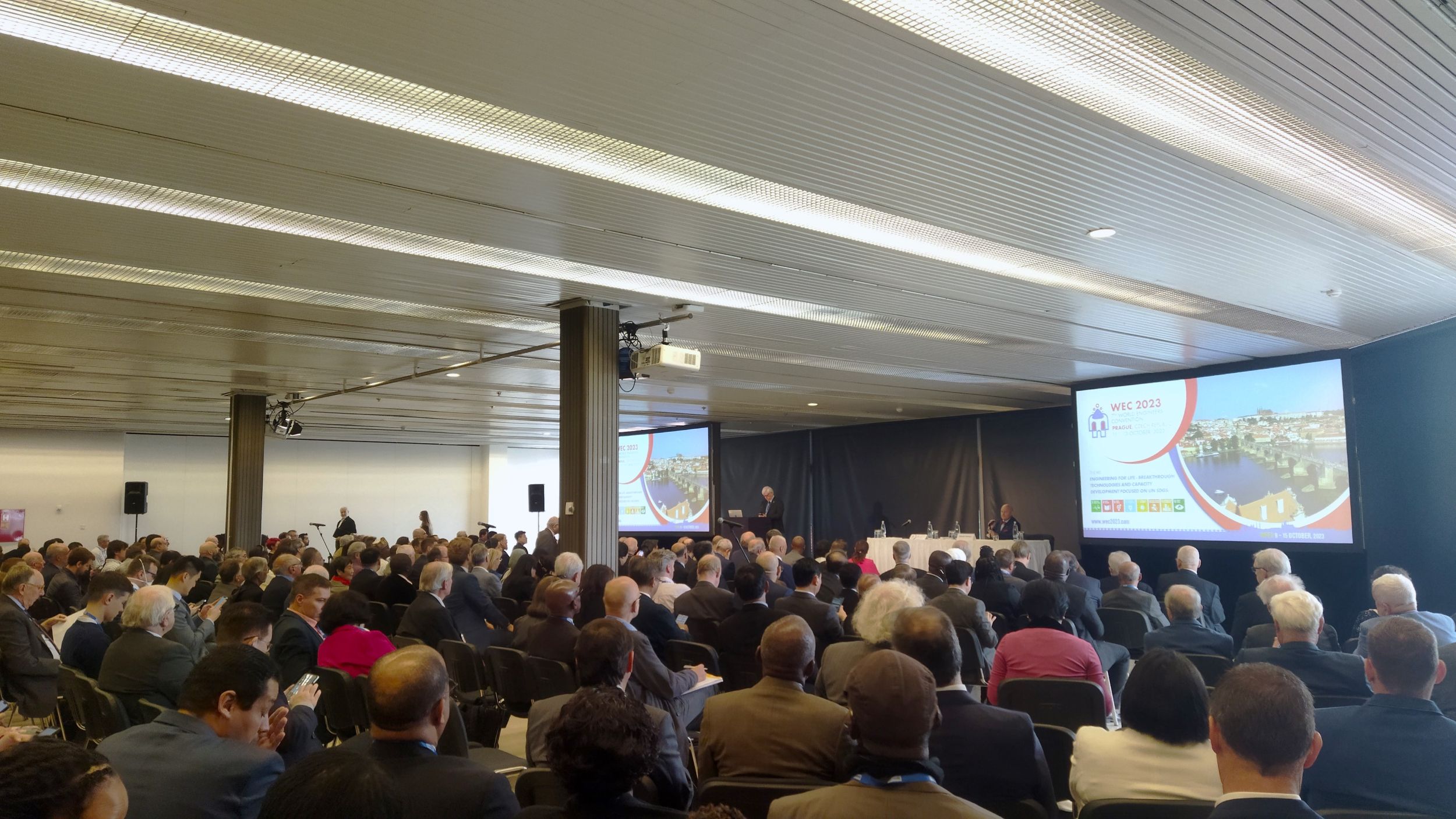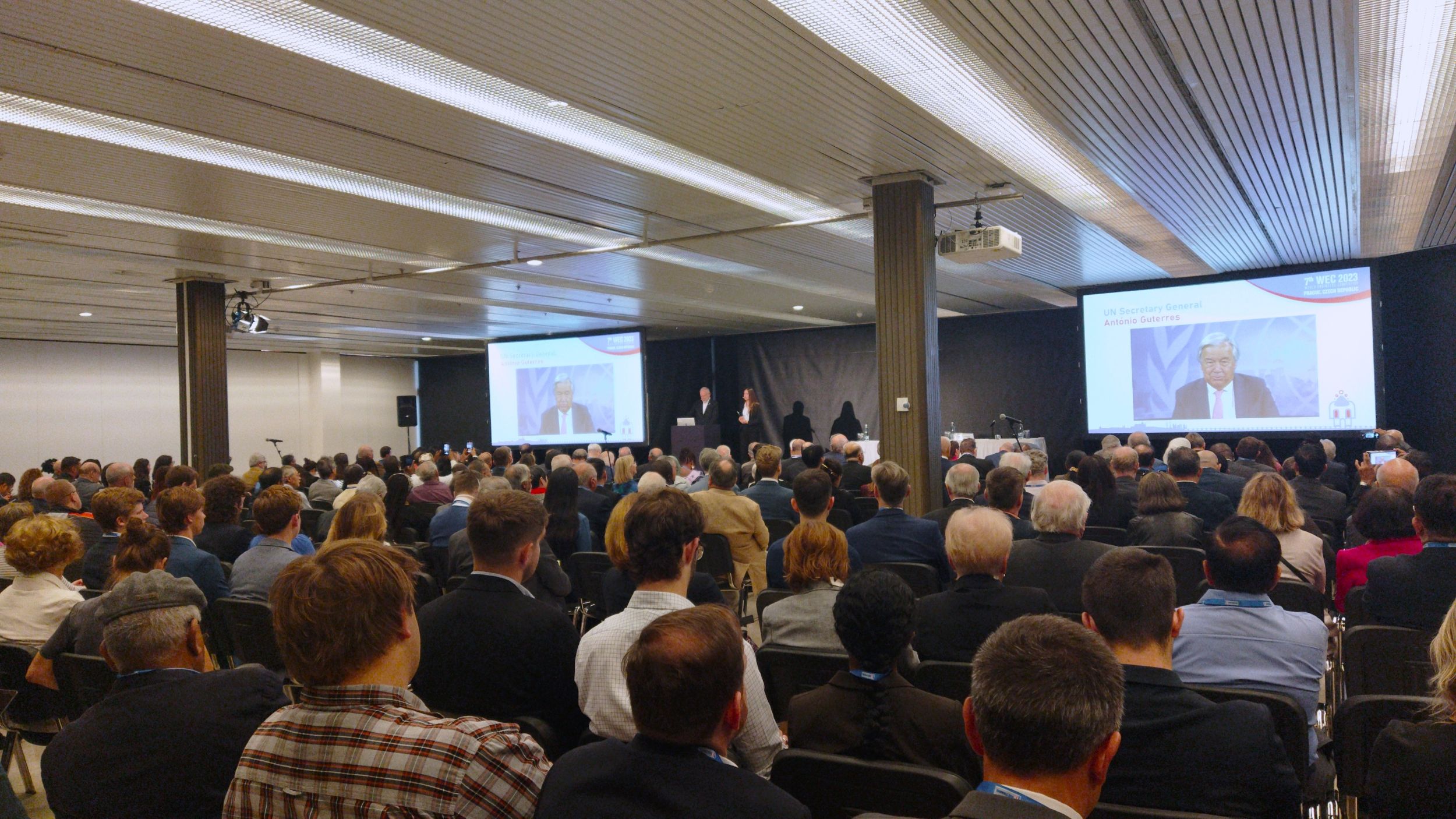


World Engineers Convention-Creating a safer tomorrow: Highlights from WEC 2023
7th edition: Prague Czech Republic, October 9-15 2023
Creating a Safer Tomorrow: Highlights from WEC 2023The 7th World Engineers Convention (WEC 2023) was held in the Prague, Czech Republic, from 9th to 15th October, 2023. This international event brought together technologists, academics, global thought leaders, technical specialists, professional, educators, students, industry influencers, and professionals from all corners of the globe. Their goal was to exchange their latest knowledge, experiences, research findings, suggestions, and visions, culminating in a spectacular showcase of the world's most recent achievements.
The convention began with a message from United Nations Secretary-General António Guterres, emphasizing the commitment of all participants to building a safer and better world, harnessing breakthrough technologies, and focusing on capacity development in line with the United Nations Sustainable Development Goals.
A noteworthy development during the convention was the involvement of the European Centre for Disaster Medicine, which joined the Scientific Committee and took charge of the sector focused on "Natural and Industrial Disasters Prevention." This sector concentrated on technologies, methodologies, research, and applications for disaster risk reduction and the protection of people's safety and public health.
It's worth noting that the frequency and scale of natural disasters have been increasing, exacerbated by the planet's significant overpopulation. Consequently, the consequences, such as natural fires, major floods, earthquakes, hurricanes, tornadoes, tsunamis, and more, have become more pronounced. While scientific and technological progress has yielded various benefits, including the growth in energy production, raw materials, and consumption, it has also introduced greater risks.
The 20th and 21st centuries have witnessed rapid industrial development, the continuous introduction of new technologies, the utilization of new materials, the emergence of new industries, and the concentrated establishment of production facilities near urban centres. These advancements have given rise to potential dangers and significant natural and industrial risks. For that reason, preventive measures, preparedness, crisis management, and emergency planning are crucial components of safeguarding the population and society today.
The convention covered key themes like disaster assessment, mitigation, preparedness, and resilience. It also delved into subjects such as science and tech challenges, disaster roles for technologists, flood mitigation in climate change, pandemic preparedness, damage assessment, national CBRN threat strategies, resilient building design, engineering for sustainability, and security of radiation/nuclear facilities.
The conference provided a platform for the presentation and discussion of various engaging topics, including:
-Current challenges in science and technology;
-The role of technologists in accelerating disaster risk reduction and resilience;
-Flood mitigation strategies in view of climate change;
-Developing the capacity of isolation facilities in view of future infectious disease pandemics;
-Assessment of damage induced by floods during extraordinary meteorological events;
-National strategies and action plans for protection against CBRN threats;
-Design of buildings for multi-risk resilience;
-Engineering to support resilience and sustainability strategies;
-Empower the next generation.
-Safety and protection of radioactive and nuclear facilities.
In recognition of his significant contributions, the European Center for Disaster Medicine was awarded the "Karel Gangloff" medal, a symbol of appreciation for his dedication and work.


